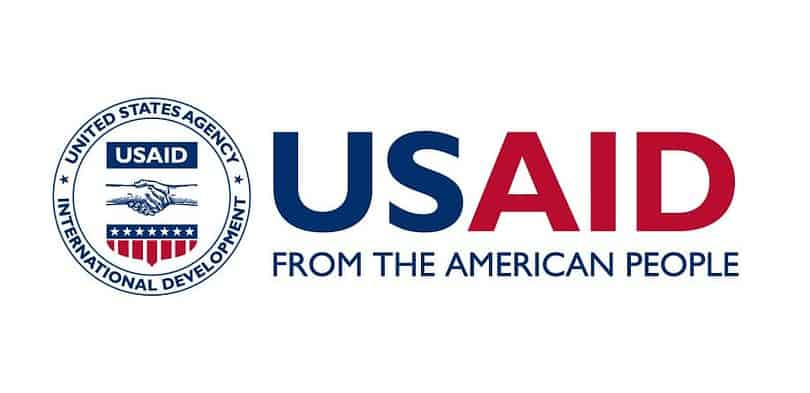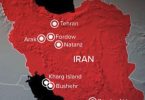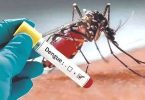JANOB. KAPEHART: Keling, katta rasmni boshlaylik. Qanday qilib va qanday yo'llar bilan ayollar iqlim o'zgarishidan nomutanosib ta'sir ko'rsatadi?
ADMINISTRATOR HUQUQI: Xo'sh, avvalo, ushbu tadbirni o'tkazayotganlarga minnatdorchilik bildirishga ijozat bering.
Ayting-chi, bu mening 10-UNGA – yo‘q, mening 11-UNGA yig‘ilishim va men ko‘plab muammolarning asosiy manbai bo‘lgan va yechimlar nuqtai nazaridan asosiy zarurat bo‘lgan bunday tadbirda birinchi marta qatnashyapman. .
Shunday qilib, birinchi navbatda shuni aytmoqchimanki, ayollar, barcha marginal odamlar kabi, barcha zaif aholi, iqlim o'zgarishidan nomutanosib ravishda ta'sir ko'rsatadi. Biz buni bu mamlakatdagi ozchilik jamoalarida qayta-qayta ko'ramiz. Biz buni butun dunyo bo'ylab o'ynayotganini ko'rmoqdamiz.
Tabiiy favqulodda vaziyatlarda haqiqiy qurbonlar yoki o'lim ko'rsatkichlariga nazar tashlasangiz, ayollar va bolalar og'ir yukni ko'tarayotganini ko'rasiz. Va siz o'ylashingiz mumkin, oh, yaxshi, bu biologik farq va ehtimol ular toshqin to'lqinlaridan o'tib keta olmaydi yoki boshqa narsa.
Lekin bu gender me'yorlari haqida, xoh u uydan chiqib ketishingiz va uylarga qamalib qolishingiz mumkinligini bilish uchun sizga ruxsat kerakdek tuyuladi. Umuman olganda, bu oila farovonligi uchun juda ko'p javobgarlik. Va yana o'z farovonligini juda muhim qo'yish uchun mavqega ega bo'lmaslik.
Siz buni kundan-kunga ko'rasiz, zaifliklar, suv quriydi va men juda ko'p joylarda bo'ldim - aminmanki, ko'pchiligingizda ham shunday bo'lgan - bu erda yildan-yilga juda qattiq, qanday qilib landshaftlar o'n yil oldingisidan farq qiladi. Lekin bir narsa unchalik o‘zgarmadi, ya’ni qishloqlarda suv yig‘ish uchun ayollar borishi norma hisoblanadi, shuning uchun mahalla yaqinida suv qurib ketar ekan, ayollar uzoqroq yurishga majbur bo‘lmoqda.
Va bu, albatta, yo'lda ayollar doimiy ravishda gender zo'ravonligiga duchor bo'lgan dahshatli vositadir. Qanchalik uzoqqa borsangiz, himoyangiz shunchalik kam bo'lsa, boshqa me'yorlar iqlim o'zgarishiga shunchalik aloqador bo'lib tuyuladi - bu ayolga hujum qilish yoki hujum qilish mumkin emasligini ko'rsatadigan norma. - bu me'yor keyin kesishadi va shu tariqa ushbu sektordagi ayollarga yana bir xil ta'sir ko'rsatadi.
JANOB. KAPEHART: Xo'sh, dunyoning qayerida bu muammolar eng dolzarb?
ADMINISTRATOR HUQUQI: Xo'sh, tanlash qiyin. Men sizga yaqinda o'zimning ufqim yoki ufqning orqada qolgan versiyasi qanday bo'lishidan qat'i nazar, qisqacha ekskursiya beraman.
O'tgan yili men Pokistonga sayohat qildim, chunki misli ko'rilmagan yomg'irlar va erish muzliklari - bir vaqtning o'zida to'qnashuvi va etarli tayyorgarlik va infratuzilma tufayli mamlakatning uchdan bir qismi suv ostida edi. Va yana, bu ko'pincha ayollar, mol-mulkni himoya qilish, chorva mollarini himoya qilish uchun eng oxirgi bo'lib, erkaklar yordam izlab borishadi. Aytmoqchimanki, hamma dahshatli tarzda ta'sirlangan.
U yerdan Keniya shimoliga va Somaliga ketma-ket beshta muvaffaqiyatsiz yomg'irli mavsumni ko'rish uchun sayohat. Shunday qilib, men Pokistonda ko'rganlarimning mutlaqo teskarisi, ya'ni qurg'oqchil er. Afrika shoxida qurg'oqchilikdan millionlab chorva mollari nobud bo'ldi. Siz o'ylashingiz mumkin, yaxshi, asosiy ta'sir chorvadorlarga, albatta, chorvachilik bilan shug'ullanadigan odamlarga bo'ladi.
Va, albatta, siz bu odamlarning o'z joniga qasd qilishlarida katta o'sishni ko'rdingiz, chunki ular ming yillar davomida hayvonlar boqishgan va to'satdan ularning echkilari yoki tuyalari xuddi shunday qirib tashlangan.
Ammo oilalarga, ayniqsa, besh yoshgacha bo'lgan bolalarga duchor bo'lgan jiddiy o'tkir to'yib ovqatlanmaslik oqibatlarini boshqarish haqida gap ketganda, umidsizlikka uchragan o'g'illar nima bo'ladi, degan savolni ayollar hal qilishlari kerak edi. hayot tarzi davom etayotganini tasavvur qildim va endi birdaniga: "Qanday qilib men ularga muqobil hayot, muqobil kasbni bera olaman", deb o'ylaydi, lekin keyin eng kichigi uchun ovqat topishga harakat qiladi.
Ya'ni, yana, u turli joylarda uriladi. Men shunchaki edim, men sizga oxirgi taklif qilaman, men hozirgina Fijida edim.
Va, albatta, Tinch okeanidagi barcha orollar uchun - bu deyarli barchasi - bu ekzistensial tahdid.
Bu butun millatlar bir necha yil ichida qaerga ko'chib o'tishlarini, nima qilishlarini, mamlakatning shu qadar pastda joylashgan qismlarida, xususan orollarda yashashlari mumkinmi yoki yo'qligini aniqlashlari kerakligi haqida.
Va faqat kichik misollar, qaerda ayollar u erda, rivojlanayotgan sanoat.
Bu holatda, men dengiz uzumini o'stirayotgan ayollar guruhi bilan uchrashdim - bu, aytmoqchi, mazali.
Men ilgari hech qachon dengiz uzumini iste'mol qilmaganman. Va ular dengiz uzumlari bilan juda faxrlanishdi. Va USAID ularni qo'llab-quvvatlashga, mikrokredit olishga harakat qilmoqda, shunda ular o'z bizneslarini qurishlari, bizneslarini rivojlantirishlari mumkin.
Ammo tasodifan, va bu erda iqlim o'zgarishi har qadamda paydo bo'ladi.
Aytishlaricha, bugungi kunda yagona muammo shundaki, biz qayiqlarimizni uzoqqa va uzoqqa olib borishimiz kerak, chunki okean isishi bilan, ayniqsa, qirg'oqqa yaqin joyda isiydi, shuning uchun biz uzoqroqqa borishimiz kerak. Shunday qilib, biz dengiz uzumimizni olish uchun oldinga boramiz, bu bizning uy xo'jaligidagi ayollar sifatida ega bo'lgan barcha majburiyatlardan ancha uzoqroq bo'lishini anglatadi.
Bundan tashqari, biz yoqilg'ida ishlaydigan qayiqlardan foydalanamiz, shuning uchun biz borar ekanmiz havoga ko'proq emissiyalarni chiqaramiz va biznesimizni rivojlantirish uchun ushbu dengiz uzumlarini olishga harakat qilamiz.
Shunday qilib, bilasizki, siz qayerga qaramang, Tinch okeani orollari, Afrika, Osiyo - bu hamjamiyatlarni siqib chiqaradi.
JANOB. KAPEHART: Men siz aytgan mikroqarzlarni olmoqchiman, USAID berayotgan yordamga erishmoqchiman. Ammo siz aytayotgan bu muammolar rivojlanayotgan dunyoning ko‘p qismi, lekin biz gapirayotgan narsa rivojlanayotgan dunyo bilan chegaralanganmi?
ADMINISTRATOR HUQUQI: Yo'q, qiyin, lekin men tasodifan -
JANOB. KAPEHART: Bu etakchi savol deb ataladi.
ADMINISTRATOR HUQUQI: Biz yashayapmiz, menimcha, biz hozir AQShda bir milliard dollardan ortiq mablag'ga ega bo'lgan yigirma uchinchi tabiiy ofat haqidamiz.
Menimcha, oxirgi bir necha oy ichida biz rekord darajadagi eng issiq kun, hafta va oyni boshdan kechirdik. Hayotimizga o'rmon yong'inlari tutuni kirib kelayotgani sababli birinchi marta ayrim korxonalarni, yozgi lagerlarni va yoshlar uchun imkoniyatlarni yopishga majbur bo'ldik.
Va yana, har xil ta'sirlar. Bu kichik misoldir, lekin bola lagerga borolmasa, u ishlaydigan onasi bo'ladi - ko'pchilik uy xo'jaliklarida, albatta, meniki - bu nima ekanligini tushunishi kerak - bu sodir bo'lgan voqeaning versiyasiga o'xshaydi. COVID bilan.
Sog'likka jiddiy ta'sir ko'rsatadigan va turmush tarziga jiddiy ta'sir ko'rsatadigan kichik yoki o'tkinchi yo'llar bilan iqlim ta'sir qilganda, buni boshqarish uyning ko'p vazifalari zimmasiga tushadi.
Ammo shuni aytmoqchimanki, Amerika Qo'shma Shtatlarining ba'zi qismlari uchun deyarli har kuni ko'rinadigan zararning moliyaviy oqibatlarini ortiqcha baholab bo'lmaydi.
Bu USAID ishlayotgan narsa emas, chunki biz chet elda ishlaymiz.
Va bizning ishimiz, men aytamanki, biz kurashayotgan eng katta taranglik va qiyinchiliklardan biri bu bizga iqlim o'zgarishi keltirib chiqaradigan rivojlanish to'siqlariga to'g'ri kelmaydigan barqaror resurslar va resurslarni berishdir.
Ular o'sib borayotgan bo'lsa-da, bizning resurslarimiz o'sib bormoqda. Lekin siz shunchaki davom eta olmaysiz. Ammo boshqa muammo shunchaki bu emas. Bizning resurslarimizning katta qismi o'tgan haftada Liviyada yoki men Pokiston yoki Somalida aytib o'tganlar kabi favqulodda vaziyatlarda odamlarni tirik saqlashga sarflanadi.
Va siz o'sha gumanitar yordamning barchasini olib, uni tabiiy ofatlarga chidamli infratuzilmaga yoki qurg'oqchilikka chidamli urug'larga yoki ekstremal ob-havo hodisalarini oldindan bilish uchun smartfonlaridan foydalanishga qodir bo'lgan kichik fermerlarga mikrokreditlarga investitsiya qilmaysiz. hech bo'lmaganda bu yo'qotishlarni engillashtiring.
Shunday qilib, men ta'riflagan narsa - bu chidamlilik va favqulodda yordam o'rtasidagi farq. Va biz hukumat va donor hamjamiyat sifatida juda muhimmiz - men aytmoqchimanki, bu ajoyib narsa, odamlarga hayotlarining eng yomon daqiqalarini boshdan kechirishlariga yordam berishga harakat qilish ajoyib sharafdir.
Ammo buni amalga oshirishda, bu juda to'xtash joyi bo'lib, siz unga qaytib kelishingizni bilasiz. Va bu qo'shimcha yurakni ezadi.
Ilgari, biz iqlim shoki deymiz, deyishgan edi, lekin hozir bu qandaydir, mamlakat dehqonchilik hayotining ma'lum bir qismining bashorat qilinadigan xususiyati bo'lsa, bu zarba bo'ladimi? Xo'sh, bu bizdan nimani talab qiladi?
Agar pirog kattaroq bo'lganida, biz chidamlilikka investitsiyalarimizni keskin oshirgan bo'lardik, bu biz qilishimiz kerak. Uzoq muddatda hayotni saqlab qolish uchun hayotni saqlab qolmaslik qiyin. Shuning uchun biz buni imkon qadar muvozanatlashtiramiz. Lekin bu qiziqarli muvozanat harakati emas.
JANOB. KAPEHART: Siz mikrokreditlar bo'limidan sakrab, men bermoqchi bo'lgan savolni kutgan edingiz, shuning uchun men oldinga sakrab o'tmoqchiman. Keling, iqtisodiy rivojlanish va iqlim o'zgarishi o'rtasidagi munosabatlar haqida gapiraylik.
Bu muammolar qanchalik chambarchas bog'liq va USAID ikkalasini bir vaqtning o'zida qanday hal qilmoqda?
ADMINISTRATOR HUQUQI: Xo'sh, men aytmoqchimanki, biz boryapmiz yoki biz tomon harakatlanmoqdamiz, aytmoqchimanki, iqlim o'zgarishiga e'tiborni barcha ishlarimizning dizayn xususiyati sifatida kiritish uchun bizda uzoq yo'l bor.
Shunday qilib, biz oziq-ovqat xavfsizligi va barqarorlik byurosini olib, uni iqlim bo'yicha guruhimiz bilan birlashtirdik. Va shuning uchun bu erda - lekin odamlar uchun aniq bo'lgan bog'liqlik mukammal o'xshashlik emas, lekin tonnalar bor - qishloq xo'jaligi emissiyalarning asosiy manbai, shuning uchun bu chiqindilarni kamaytirish kerak.
Va, albatta, iqlimga mos qishloq xo'jaligi oziq-ovqat xavfsizligini saqlab qolish yoki kelgusi yillarda uni oshirish yo'li bo'ladi. Shunday qilib, bu bitta birlashma. Ammo ta'lim nuqtai nazaridan u birinchi o'rinda turadi. Aytmoqchimanki, barchamiz, farzandlari bor har birimiz, bolalar biz haqimizda bilishni istashlari birinchi raqamli narsa bu nafaqat men bilgan dunyo bilan nima yuz berishi, balki bu borada nima qilishim mumkin?
Boshqaruv sohasidagi ta'lim haqida o'ylash ham - bu iqlim o'zgarishiga bardosh bera olmaydigan hukumatlar uchun barqarorlikni buzadi, xoh barqarorlik tomonida bo'ladimi, xoh favqulodda vaziyatda, chunki bu biz ko'rgan institutlarga ishonchni yo'qotadi. dunyoning ko'p qismlari.
Bu faqat kuzatuv texnologiyalarini eksport qilish haqida emas, bilasizki, XXR yoki boshqa vositalar bilan hujumga uchragan demokratik davlatlar.
Bundan tashqari, dunyoda sodir bo'layotgan voqealar ham borki, hukumat o'zini ushlab turolmasa, bu institutlarga nisbatan kinikizmni kuchaytiradi. Shunday qilib, biz USAIDda boshqaruv ishlarini olib boramiz, ta'lim bilan shug'ullanamiz, iqlim bilan to'liq bog'liq bo'lgan sog'liqni saqlash bilan shug'ullanamiz, deyishning uzoq usuli.
Bezgakning o'zgarishiga nazar tashlasangiz, JSST, menimcha, 250,000 yilga kelib iqlim bilan bog'liq qo'shimcha 2030 XNUMX kishi halok bo'lishini bashorat qilmoqda - bu issiqlik stressi yoki bezgak yoki suv tanqisligi, undan kelib chiqadigan to'yib ovqatlanmaslik.
Shunday qilib, biz agentlik sifatida qayerga borishimiz kerak bo'lsa, e'tiborni barqarorlik va iqlim o'zgarishiga e'tibor qaratish va bu jamiyat uchun nimani anglatishini biz qilayotgan har bir narsaga jalb qilishdir.
In a sense, USAID is a climate agency, even if we still have a climate team that works as a climate team per se, mainstreaming this agenda is what our missions are trying to do all around the world.
And this is not because I anticipate the, you know, the concerns of some maybe in our domestic politics on this – and I’m sure you’ll get there, but this isn’t USAID foisting anything.
This is the cri de coeur for you know, heard all around the world, that this is a game changer. Our development trajectories were going here – COVID hit and now we have what could feel like a COVID-like, not not of the same scale, but battering again and again and again.
So just as we’re now thinking differently about pandemic prevention, what should that lead us to think about when it comes to embedding climate in the mindset of all public spending and all notions of mobilizing, mobilizing private capital, because that’s, of course, going to be a big part of the solution.
So we’re that’s – it’s this mainstreaming and not having climate live over here. But given that it is this game changer and given it’s our host countries and the communities in which we work and of it works. It’s John F. Kennedy’s pleading gives us more of the tools to adapt to this shell-shocking phenomenon.
JANOB. KAPEHART: Well, I asked the question about economic development because, with economic development comes perhaps better lives, and better living conditions, which then can exacerbate the issues related to climate change.
So how do you – and I wrote it down really fast – that mainstreaming, how in mainstreaming climate in the things that you do. How do you find that balance between helping people help themselves, while at the same time not doing it in a way that exacerbates the climate problems that we all have to face?
ADMINISTRATOR HUQUQI: Yeah, and I mean, I think one example I think that you’re alluding to is, you know, as people get richer, they buy more meat and that causes, you know, more emissions or they travel more, they’re flying more there.
And absolutely, I mean, we’ve seen that the emissions trajectory in both the PRC and India reflected that.
Our emissions trajectory, back as we were bringing our economy online and modernizing, absolutely reflects that. So I think that is profound. I will say the fact that solar power, the cost of solar has come down by 85 percent. The cost of wind is down by 55 percent. Where we work, the demand signal for renewables is very, very significant – which doesn’t get it mediating some of the other features of getting wealthier.
But it does get to the urgency of making clean energy transitions as these prices come down. It is a better bet. And so again, when we have these exchanges on the Hill and it looks to some who are skeptical somehow still of climate programming, you know, that we’re bringing our green agenda to the countries in the communities we’re working in – no, it’s not like that at all.
They’re saying we can’t afford this other thing.
But actually, we can pop up a solar panel and have a water pump that we’ve been trying to get in this village. We can go off the grid in ways we never – where the state is not going to get here any time soon.
This was my experience out in Bekaa Valley in Lebanon, where USAID had worked to, you know, build a bunch of solar panels that powered electricity and ended up actually reducing tension between refugees who were being generously sheltered by Lebanese host communities, Syrian refugees, and the Lebanese.
Because they were no longer fighting over water because they had water because they had solar – but to attach to the grid, no way. And so then those tensions, who knows what would happen with that.
So the idea is that these investments are cost-effective over time, that actually you can develop, along the lines of what you’re describing, in a clean way.
I think the other aspects of consumption need to be dealt with as part of civic education and as part of norm work because it is true that in many, many societies, and again, including our own back in the day, as you increase your livelihoods, your income, consumables are a very attractive way to expand those new resources.
This feels like a high-class problem in most of the countries we’re talking about. I mean, I’m talking about working with small-scale farmers who are paying double this year for fertilizer than they were paying before Putin invaded Ukraine, who just need a little loan to be able to get access to some of those drought-resistant seeds that are going to increase yields by 25 percent.
But again, finding the resources to get them that. Getting the private sector interested in adaptation. But the question that we should be thinking now about, if we can be successful, if we can help them withstand the negative effects of climate change and the like here in America, grow jobs out of also these changes to their economies, then what?
Then we will be grappling with the kinds of things that have further fueled emissions in more recently developed countries.
JANOB. KAPEHART: As you alluded to many times, there’s a lot of good news related to the development of clean energy alternatives. That being said, though, global emissions once again hit a record high in 2022, and carbon dioxide in the atmosphere has risen to levels not seen in millions of years. Are we moving in the wrong direction despite glimmers of hope?
ADMINISTRATOR HUQUQI: Well, I mean, I think all of us can answer that question in two ways. And we talk to ourselves all day – on the one hand this, and on the other hand that. But what we can say is we’re certainly not moving fast enough. And you know what breaks my heart is, it’s a little bit like another version of the vicious cycle you were kind of describing.
But when you see the wildfires, and the rate of wildfires, and then all of the carbon emitted and all of the good that had been done with carbon emission reductions – and that being not washed away – whatever, smoked away, burned away – that’s heartbreaking because these investments are accelerating.
They are building momentum. So I think that, and that’s not the only thing that’s heartbreaking.
There’s so much that’s happening day to day and a little bit of the despondency, I think, setting in as well – as people just open the newspaper, and whether it’s in their own community or one further afield or even something like what happened in Libya, which just captures the imagination of, which was its own sui generis issue with regard to governance and infrastructure, but would not have happened that way but for the intensity of Storm Daniel, which is just being seen in so many communities.
But what I do think it’s important to come back to, at least as proof of concept, is that in Paris the projections – they were, we the world, were on a track to warm 4 degrees and we are now on a track to warm 2.5 degrees.
So that is a reflection of the agency that people have claimed over this trajectory. The problem is we need to curb warming at 1.5 degrees, but that delta from four to 2.5 should give people at least a sense that actually collectively we are doing things that are making a difference. There’s no doubt we are doing things that are making a difference.
If I could, though, I think the area that we have – I mean, as John Kerry likes to say, if we don’t get mitigation right and the carbon reductions right, there’ll be no planet to adapt. He makes a comment like that a lot.
We, at USAID, are in the mitigation and adaptation business, as is Secretary Kerry and his team. But I think in mitigation, what I think gives one hope is just how much the private sector has leaped in now recognizing that there’s money to be made. And I’d love to rely on people’s good intentions and their feeling of fellow humanity, but it’s much more reliable if they think there’s money to be made.
And that shift has occurred. And you see it in the IRA, which is already defying even the best projections and extrapolations that people did. I mean, this is going to have way more collateral effects and bring down carbon way more, I think, than people could have, just strictly speaking, anticipated because of a cascade now of private sector interest fueled and catalyzed by the underlying legislation.
And so too, as the prices come down again, there’s a virtuous cycle. Adaptation – we’re not we’re not there. And I don’t know if we’re ten years behind where we are on mitigation – where we are on mitigation.
Like it’s the same thing going to happen in ten years where we look back and say, oh, we lost all that time. Why couldn’t private-sector actors have seen as well that there’s good to be done and money to be made?
I guess if you have to think that way around the insurance industry in the agricultural sector, in Fintech, I mean, all these tools are going to be absolutely critical in particularly rural areas and those areas that are most vulnerable to climate change.
But about two percent of funding for adaptation comes from the private sector right now, and that has just got to change.
So President Biden and we have done a big call to action to the private sector, but it’s slow going. And even if you take – forget the specific sectors that have a direct nexus with the need to build resilience – look at it in even more stark terms. The market share that so many companies are hoping to capture is themselves going to have less money to spend, maybe in flight, maybe at war.
And so the positive of that is, hey, if we can help them adapt and be more resilient and where these emergencies happen, but don’t wallop communities in the same way and they bounce back, those are consumers that will be our consumers. But the negative is what if, you know, millions, tens of millions of consumers are taken offline because they are driven into poverty?
The predictions now are that 100 million more people driven into extreme poverty by 2030. But that’s within our hand, that adaptation. There’s so much less to, as I would say to my kids, there’s room to grow.
The areas that are the most troubling in some ways, there’s really room to grow. And you could see a cascade of the kind that we’ve seen on carbon mitigation.
JANOB. KAPEHART: Administrator Power, we got a minute and eight seconds and this will be the final question. The name of this conference is This is Climate: Women Leading the Charge. So how do you see women reshaping climate leadership?
ADMINISTRATOR HUQUQI: We, USAID, and Amazon, the company, not the forest, launched a gender equality fund, a gender equity fund at COP, and we launched it with $6 million in funding. And this is for women.
It’s for projects that will benefit women, it’s for projects that are driven by women in adaptation or in mitigation – the whole or the protection of natural ecosystems – but things broadly in the climate space.
And today we have the Visa Foundation and Reckitt, a company out of the United Kingdom, who have joined us and matched that initial – USAID put in $3 million, Amazon put in $3 million, and have added $6 million.
Why do I mention this? It’s not a huge amount of money yet. We are going to get up to $60 million, we hope, in rapid order.
This is part of another cascade that we would like to see. We’ve put out a request for proposals, incredible women leaders are putting proposals in.
These can be small projects. A lot of the climate finance right now is not going to small projects, it’s going to big international organizations. So working more with local partners is going to be absolutely key.
But these are going to be the success stories that are going to inspire people to invest more and to believe that change can come. And sadly, there are just not that many examples of climate finance facilities that are targeted and tailored toward women, even though women are bearing the greatest brunt.
And women, I think, in my experience, are doing the most innovative work in dealing with the consequences of climate change and trying to lower those consequences in the years ahead.
JANOB. KAPEHART: Samantha Power, the 19th Administrator of USAID, thank you very much for joining us today.
ADMINISTRATOR HUQUQI: Thanks, Jonathan.
What is USAID?
USAID stands for the United States Agency for International Development. It is an independent agency of the United States federal government that is primarily responsible for administering civilian foreign aid and development assistance. USAID’s mission is to promote economic and social development in countries around the world, with a particular focus on reducing poverty, promoting democracy, and addressing global challenges such as public health crises, environmental sustainability, and humanitarian crises.
Some of the key functions and activities of USAID include:
- Providing humanitarian assistance: USAID responds to natural disasters, conflicts, and other emergencies by providing humanitarian aid, including food, shelter, and medical supplies, to affected populations.
- Promoting economic development: USAID works to stimulate economic growth in developing countries by supporting projects and programs that create jobs, improve infrastructure, and foster private sector development.
- Supporting democracy and governance: USAID promotes democratic governance by providing technical assistance and support for fair and transparent elections, strengthening civil society organizations, and advocating for human rights and the rule of law.
- Advancing global health: USAID plays a crucial role in global health initiatives, including efforts to combat infectious diseases like HIV/AIDS, malaria, and COVID-19. It supports healthcare systems strengthening, family planning, and maternal and child health programs.
- Environmental sustainability: USAID works to address environmental challenges, including climate change and natural resource management, through projects that promote conservation, renewable energy, and sustainable agriculture.
- Education and capacity building: USAID invests in education and capacity-building programs to enhance the skills and knowledge of individuals and institutions in developing countries, thereby contributing to long-term development.
- Food security and agriculture: USAID supports programs aimed at improving food security, increasing agricultural productivity, and reducing hunger and malnutrition in vulnerable populations.
USAID operates in partnership with governments, non-governmental organizations, international organizations, and other stakeholders to achieve its development goals. It is often involved in projects and initiatives that aim to alleviate poverty, promote stability, and enhance the well-being of people in countries where it operates. The agency’s work is guided by the foreign policy objectives of the United States and the broader goal of fostering global development and progress.























